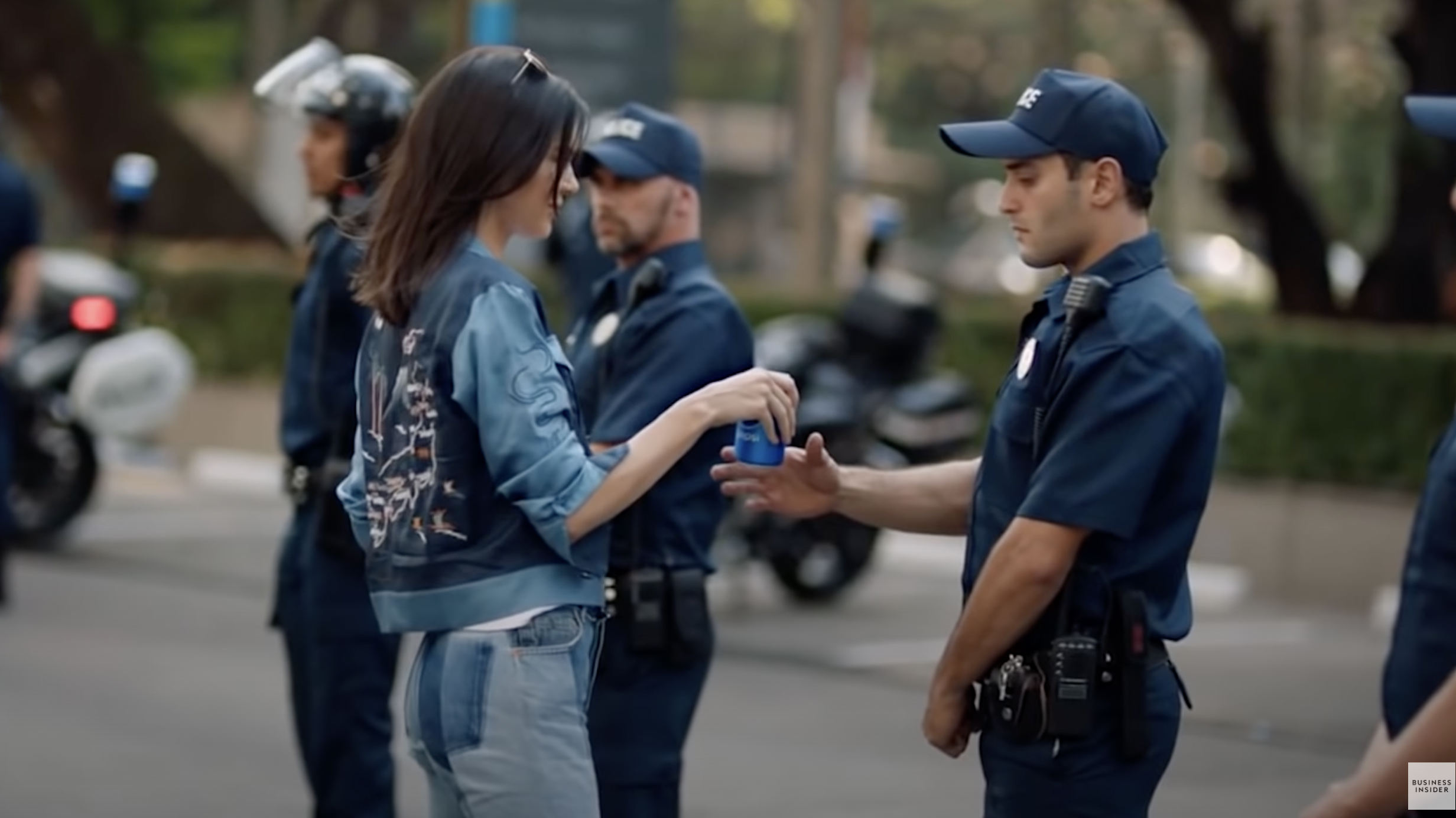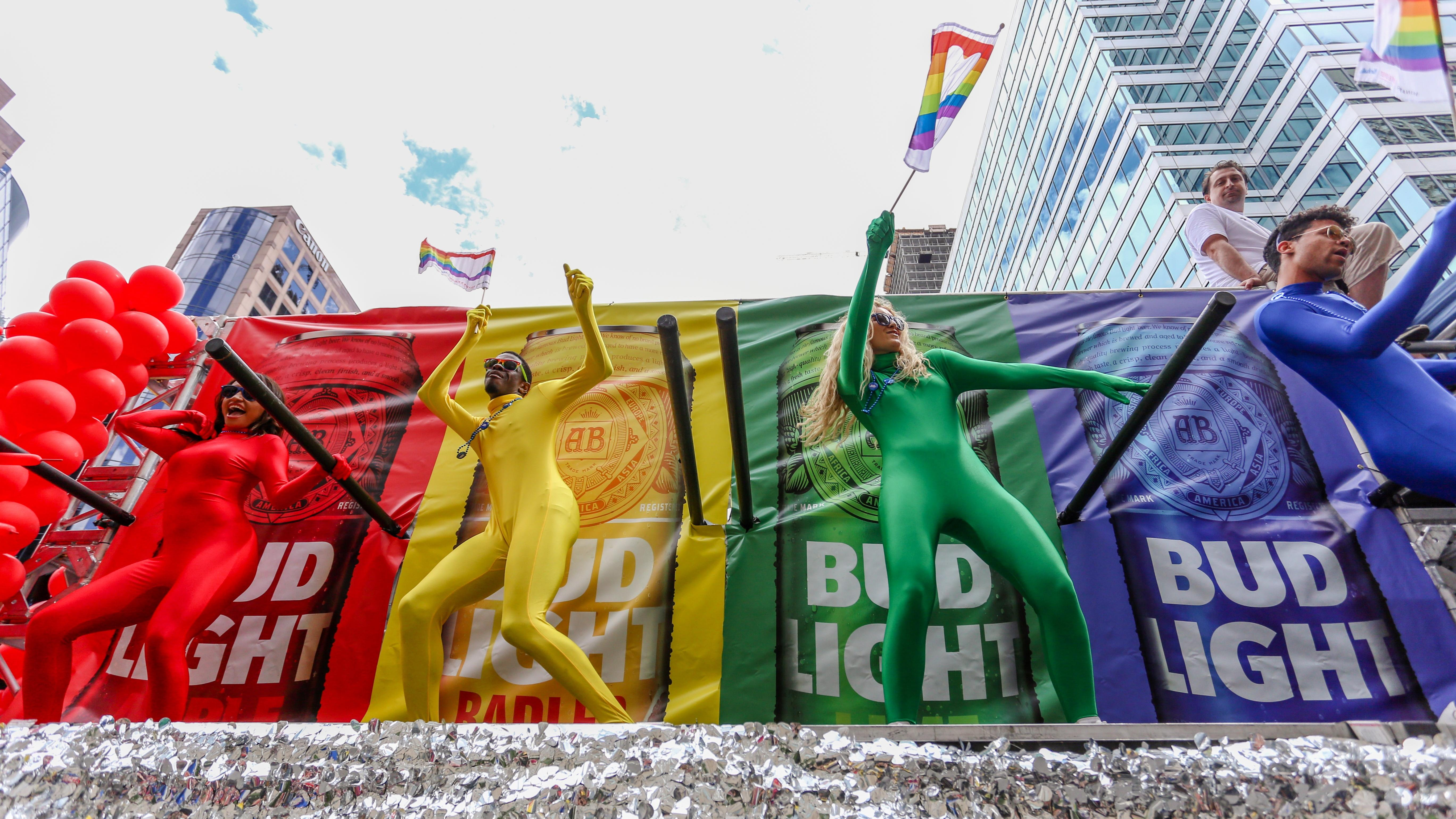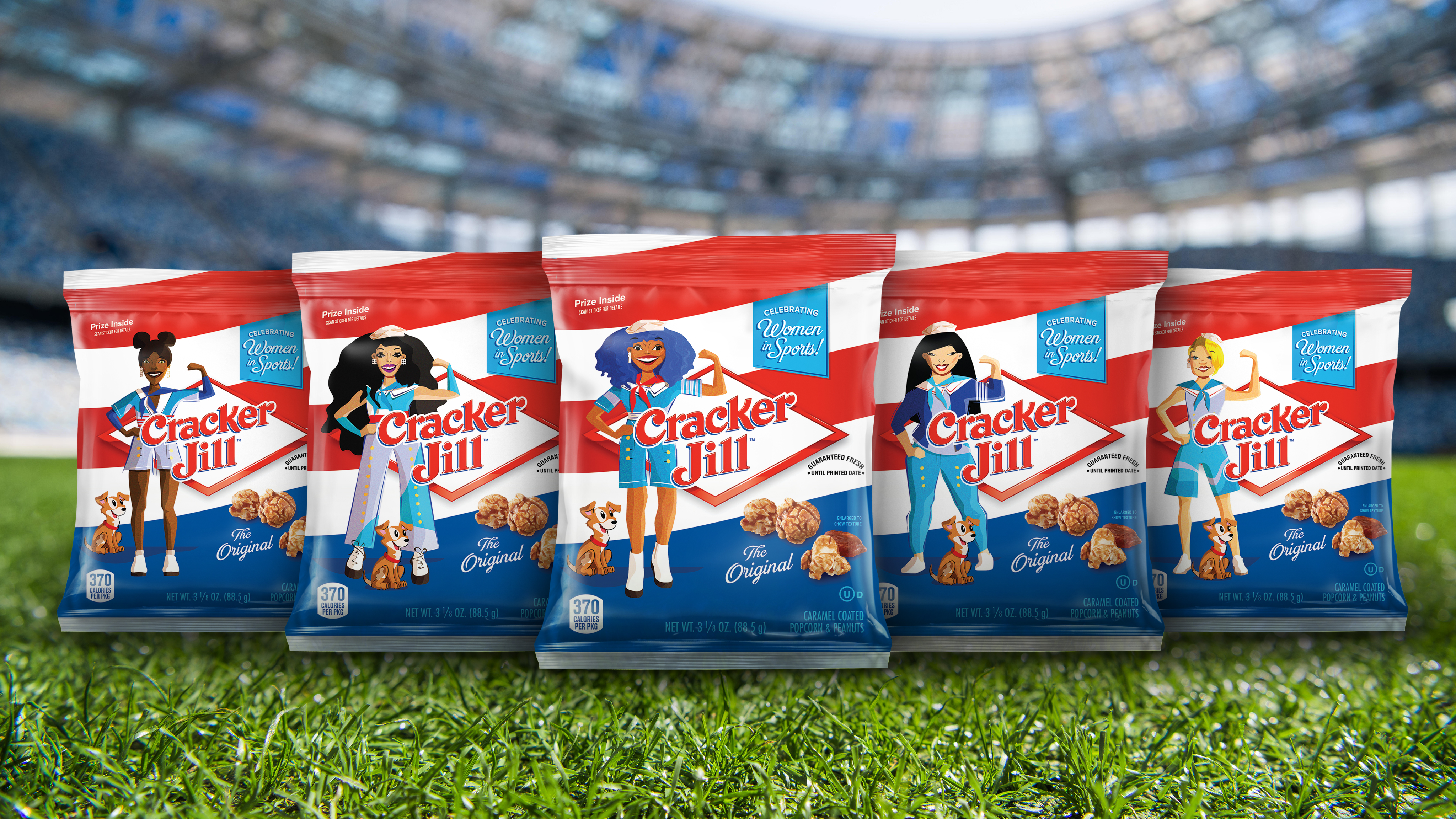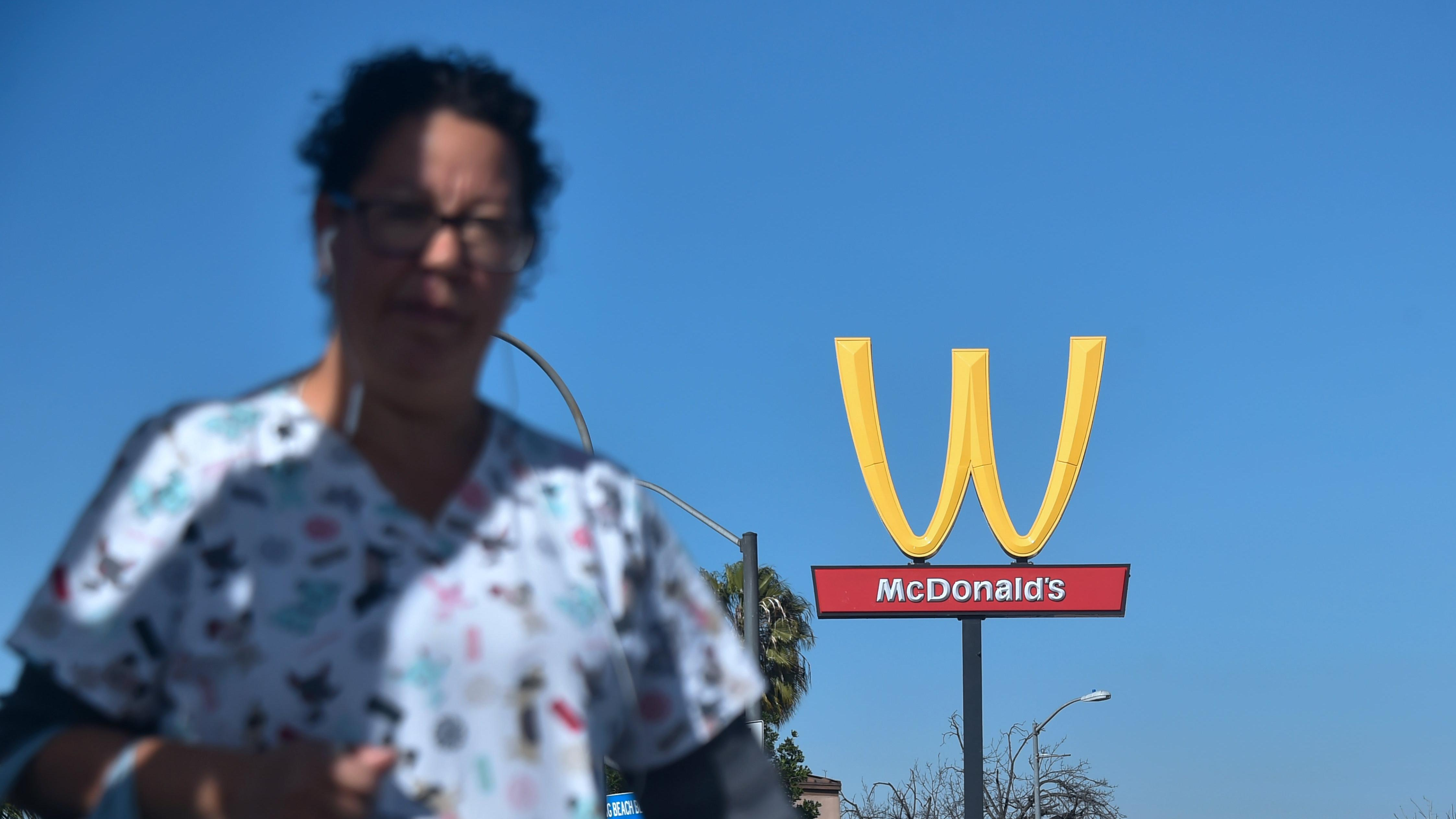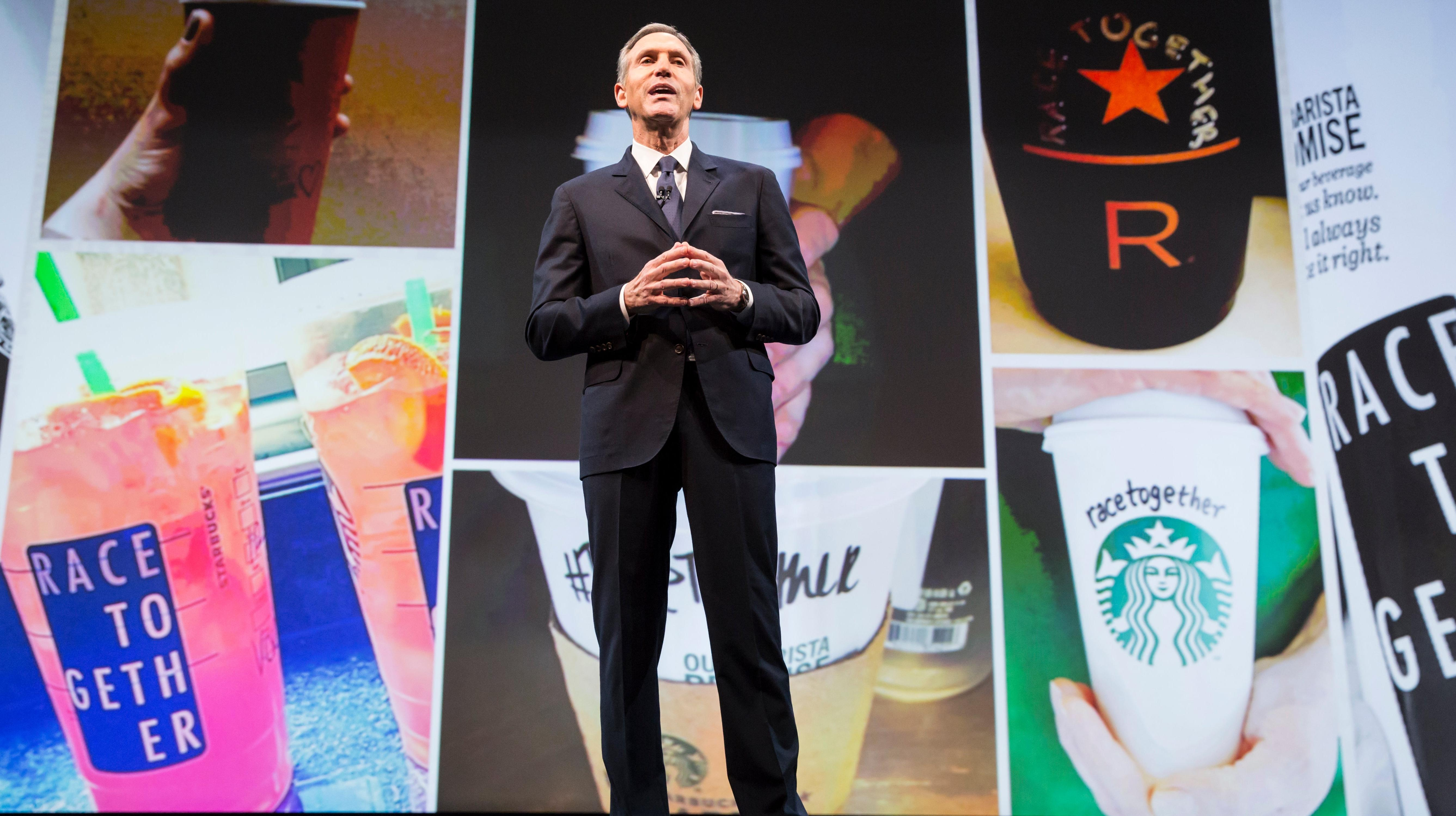9 Of The Worst, Most Performative Food Ad Campaigns
This isn't the way we want food and beverage brands to take a stand.
Sometimes business try too freakin' hard to appear like they give a damn. And more often than not, those attempts majorly backfire. We're not talking about companies that are doing the work—donating profits to worthy causes, improving conditions for marginalized workers, challenging the very idea of the capitalistic society that enabled them. Instead, we're talking about food and beverage brands that think slapping a rainbow on their logo for 30 days in June or scheduling a tweet about Black History Month is enough to gain them accolades from an adoring public.
In the year 2022, we're past performative gestures and we're all about action items. Supporting the cause and continuing to build a proven track record is worth more than all the multi-million-dollar ad campaigns, eye-catching hashtags, and viral video trends put together.
If you're still confused, take a look at these marketing campaigns gone wrong as a blueprint for what food and beverage brands should absolutely not do.
BrewDog’s Pink IPA, “Beer for Girls”
The brewing industry has been notoriously full of white dudes, and while that's started to change in recent years, parity is still a long way off. It would make sense that a brewery might want to make a statement about that, but BrewDog's Pink IPA ain't it.
The BrewDog site describes the beer, which was release on International Women's Day 2018, as such:
Satirically dubbed Beer for Girls, Pink IPA is BrewDog's clarion call to close the gender pay gap in the UK and around the world and to expose sexist marketing to women, particularly within the beer industry. This is our overt parody on the failed, tone-deaf campaigns that some brands have attempted in order to attract women.
Pro tip: If you have to clarify that a product is "satirically" named and is an "overt parody," the message may not be strong enough. While 20% of the proceeds of that particular beer went to charities fighting inequality and supporting women, the brewery might have been better off simply donating proceeds from the beer without the pink visual aids.
Bud Light’s LGBTQ acronym
In 2019, Bud Light threw its hat into the rainbow capitalism ring with multicolored aluminum bottles to celebrate world pride. While it was somewhat heartening to see a brand more closely associated with toxic heterosexuality showing some support, when it came to the actual campaign, there was one glaring misstep: the appropriation of the LGBTQ acronym to sell beer.
This I don't like. Not even a little bit. pic.twitter.com/uCQjLaNhQH
— Casey Conway (@caseyconway_) June 3, 2021
This is, as many people pointed out at the time, the sort of ad that gets made when no actual queer people are in the room—and if your company doesn't have at least one gay person in a position to consult on these matters, there's more work to do. As it was, Bud Light's choice to remove the actual words signified by each letter in the LGBTQ acronym and replace them with a fluffy party invitation didn't sit well with consumers.
Bud Light almost put its money where its mouth was, committing to donate $1 from each bottle sold to GLAAD. But take a closer look at the press release on the Anheuser-Busch website and you'll see the phrase "up to $150,000." Just as a reminder, Anheuser-Busch is a multibillion-dollar company, so $150,000 is basically chump change.
There's more: Last year, Out reported that Stonewall Inn ended up pouring its Bud Light supply down the drain after the revelation that the company was also donating money to anti-LGBTQ causes.
Chipotle hawks pride burritos
There's something about Chipotle's Pride slogan "¿Homo Estás?" that's wrong on many levels. First of all, the campaign was first released in 2015 just after the Supreme Court declared same-sex marriage legal in all 50 states—the timing reeks of trying to make a buck off of a civil rights milestone. Secondly, as pointed out by Latino Rebels, the appropriation of the Mexican language as a sexualized joke—below the question there is another question in English, "Which way do you sway?" referring to eating tacos or burritos. At worst, it's offensive to two marginalized groups at once, and at best it's extremely tacky and not taking much of a stand at all.
Chipotle seems to be one of the few major brands that doesn't regularly support anti-LGBTQ groups or other far-right causes, so we're almost willing to let this one slide. Almost.
Cracker Jack, meet Cracker Jill
This WTF marketing moment is a 2022 original. "Created to celebrate the women who have broken down barriers in sports, Cracker Jill comes to life through five different representations on a series of special-edition Cracker Jill bags," reads a press release from Cracker Jack sent to The Takeout.
Once again, making a big deal of gendering a brand in the name of female empowerment is missing the point—and not doing much of anything else. This "celebration of women in sports" also feels poorly timed as transwomen athletes are currently being discriminated against on the national stage. If Cracker Jack (er, sorry, Jill) were using this campaign to make more of a comment about supporting athletes of all genders, that might qualify as a reason for Cracker Jill to exist. Instead, while not exactly offensive, this gimmick is more cringe in the "your mom's going to text you about how cool this is" kind of way.
Hershey’s celebrates SHE
What we have here is a brand working hard and not smart. If Hershey's had gone for the simplest pun, maybe we wouldn't be so annoyed by this International Women's Day cash grab, which we have been moved to write about before:
The chocolate bars highlight the "she" in Hershey's, and a sign on the box instructs customers to scan a QR code "to learn more & find out how you can celebrate SHE." Celebrate SHE?
"We want to encourage everyone to share some extra goodness and take a moment to celebrate the 'SHEs'; the women and girls who have inspired us, motivated us and have made a positive change in our lives," said Veronica Villasenor, Vice President, Chocolate, The Hershey Company, in the press release.
Celebrate the SHEs. Even the capitalization feels overwrought, doesn't it?
The HER was right there!
McDonald’s turns its arches upside down
International Women's Day strikes again: In 2018, McDonald's flipped its iconic arches upside down so it represented a "W" for—you guessed it—women. Delish reported that uniforms and packaging at 100 stores across the country were emblazoned with the new logo, to celebrate "the extraordinary accomplishments of women everywhere and especially in our restaurants."
This was the epitome of an empty gesture. As many were quick to point out at the time, with all the money it spent on changing all those logos, McDonald's might have instead funded initiatives to make working conditions better for women, or to protect them against workplace harassment, as ongoing worker protests have demanded. But at least we can collectively imagine how excited McDonald's marketing executives must have been when they realized that "M" is just an upside down "W."
Pepsi solves racism
Do you remember where you were when you first saw the 2017 Kendall Jenner Pepsi ad? There's not much more we can say than already has been said, but let this resurrection of Pepsi's "Live For Now" commercial (which has its own Wikipedia page, btw) remind everyone that trivializing the work of activists, protesters, and the Black Lives Matter movement is not a good jumping off point for capitalism.
In the midst of civil unrest in 2020, Pepsi pledged to spend $400 million "to lift up Black communities and increase Black representation at PepsiCo," and according to Snopes, that amount did go toward Black-owned suppliers, restaurants, and small businesses, but the company was quick to clarify that they were not donating to the Black Lives Matter movement. You were so close, Pepsi. So close.
Skittles go “rainbowless” for pride
Skittles is one of the only brands that can naturally lean into their rainbow packaging to show support during pride celebrations, which makes it even funnier that they got it so wrong. In 2017, the candy company put out a bag of white candies, explaining that, "During Pride, only one rainbow matters. So we've given up ours to show support." But, as Huffington Post reported, the marketing move faced immediate backlash for the exclusionary implication that whiteness should somehow represent equality.
Skittles didn't quite get the message: it brought back the colorless skittles in 2020, this time turning the candies various shades of gray. The brand claims that the intention each time was to "give back the rainbow" and make sure the pride rainbow took center stage. But in fact, it's these stupid-looking Skittles that steal the spotlight more than anything.
Starbucks wants us to #RaceTogether
Imagine walking into your local Starbucks, grabbing your go-to coffee order then casually saying to your barista, "So, race relations? Your thoughts? And make it quick, cuz I have to be in the office in 5." This, apparently, is what Starbucks executives thought would happen when they launched the #RaceTogether campaign in 2015.
What makes this perhaps the worst PR stunt ever is that it's not dashed-off and careless, like the act of turning a logo pink or something. Instead, a weird amount of thought appeared to go into the #RaceTogether campaign. Eater dug in deep, revealing that internal memos at Starbucks offered up "conversation starters" for baristas. Examples: "In the past year, I have been to the home of someone of a different race ___ times" and "In my Facebook stream, ___% are of a different race."
One Eater story explains:
Additionally, Starbucks did not spend time "discussing how it would look for a white billionaire to front a national dialogue on race." Instead the company put their effort into scaling up what had worked — the "partner" (employee) forums. Even though when it launched, Race Together seemed to back fire, [former Starbucks CEO Howard] Schultz notes, "The irony is, we did create a national conversation — not how we intended, but you learn from mistakes."
Did Starbucks really learn from its mistakes? Since 2015 the company has faced several allegations of racial discrimination and gone all-in on busting the unions that could implement better diversity, equity, and inclusion policies across stores. Huh, I guess the #RaceTogether cups didn't work.
